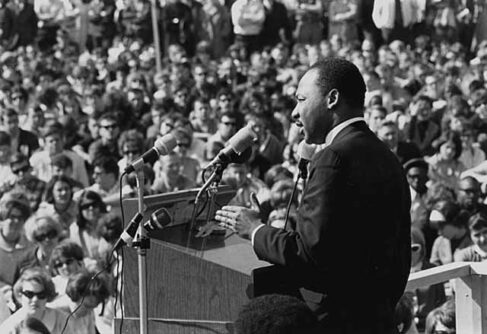You want to be a good philanthropist, not a bad one, right?
Princeton professor Peter Singer is here to help you with “objective” criteria for good philanthropy, which he lays out in a Sunday New York Times op-ed.
Good philanthropy, according to Singer, is the philanthropy that achieves the greatest “bang for the buck.”
Singer illustrates his point by contrasting the value of a $100,000 contribution to build an addition to a local museum with a $100,000 contribution to reduce the incidence of blindness in the developing world. On his account this is a no-brainer: the contribution to reduce blindness is worth far more than the contribution to a local museum.
Choosing the local museum would be show you to be parochial, frivolous, dumb, or all of the above. It would be “bad philanthropy,” while giving to a program to save distant people’s sight would be “good philanthropy.”
The examples that Singer chooses is designed to make any other choice than the one he recommends ridiculous. It’s like the “lifeboat ethics” examples that kick off some Philosophy 101 classes, in which professors pose conundrums about whom to throw over side of the lifeboat if some cannot be saved.
Notice that Singer freights the choice between the local museum and reducing incidents of blindness as a moral one—one choice is “bad” while the other is “good.” That’s because Singer’s argument is based on a particular moral theory—the theory of utilitarianism.
Utilitarianism is the view that people should act so as to maximize the greatest happiness of the greatest number; one of its chief proponents, the nineteenth-century English philosopher John Stuart Mill, called utilitarianism the “Greatest Happiness Principle.”
Utilitarianism is one of the most influential moral theories of the last two centuries, with advocates including Jeremy Bentham, John Stuart Mill, Henry Sidgwick, and G. E. Moore. Peter Singer is today’s foremost utilitarian.
Utilitarians like Singer argue that one should determine how to act by imagining a “happiness meter” that would measures the total, combined happiness of everyone before and after various events, and choose the course of action that yields the greatest sum of happiness. Utilitarians emphasize that no one’s happiness can be considered especially—you can’t put any extra value on your own happiness, or your children’s happiness, your neighbors’ happiness, or your fellow citizens’ happiness: everyone’s happiness counts equally, and there is no room for any special charity at home. In this respect, utilitarians are the ultimate democrats.
To return to his example, Singer assumes that if we could measure everyone’s happiness with a happiness meter, it is certain more happiness would be added to the global sum of happiness by preventing cases of blindness in the developing world rather than by building an addition to a local museum here in America. The only argument against the philanthropist’s giving to the blindness-prevent program would be if some other, yet more efficient program came along (say, one that yielded yet more happiness by preventing cases of malaria).
Of course, this reduces philanthropy from a moral enterprise to a merely technocratic one. Instead of searching one’s heart and carefully pondering what philanthropic objectives to adopt, all one needs to do is to consult the happiness meter and hand over one’s money to the program that most efficiently produces happiness—whether the beneficiaries are nearby or around the world, and whether one has any sympathy or experience with the kind of activity one funds. Indeed, for Singer—yes, he is that Singer who condones infanticide and tells us not to be “speciesists” by putting humans above other animals—whether the beneficiaries are human or non-human.
For Americans, Singer’s advice would require forsaking almost all philanthropic activities in the United States (at least ones directed to one’s fellow man rather than to animals!). Here’s what Singer concludes about the direction philanthropy should take:
In general, where human welfare is concerned, we will achieve more if we help those in extreme poverty in developing countries, as our dollars go much further there. But the choice between, say, helping the global poor directly, and helping them, and all future generations, by trying to reduce greenhouse gas emissions, is more difficult. So, too, is the choice between helping humans and reducing the vast amount of suffering we inflict on nonhuman animals.
Most people will think this defies common sense always to prefer those who are far away to those who are near, always to prefer strangers over family, and sometimes to prefer animals over people. But, because Singer’s argument is posed in extreme terms—like the “lifeboat ethics” examples at the beginning of Philosophy 101—it has a certain surface persuasiveness. But most Americans are not utilitarians in their moral intuitions, and we need a more robust moral theory than utilitarianism to help us choose between times when we do best to help those abroad and those times when charity must begin at home.







Thank you for this article that underscores Singer’s faulty argument. Additionally, the value of a gift given through international vehicles to help impoverished individuals in developing nations can only be known by evaluating the channels of distribution and the programs involved, in order to know how much of the donation contributes to the intended goal.